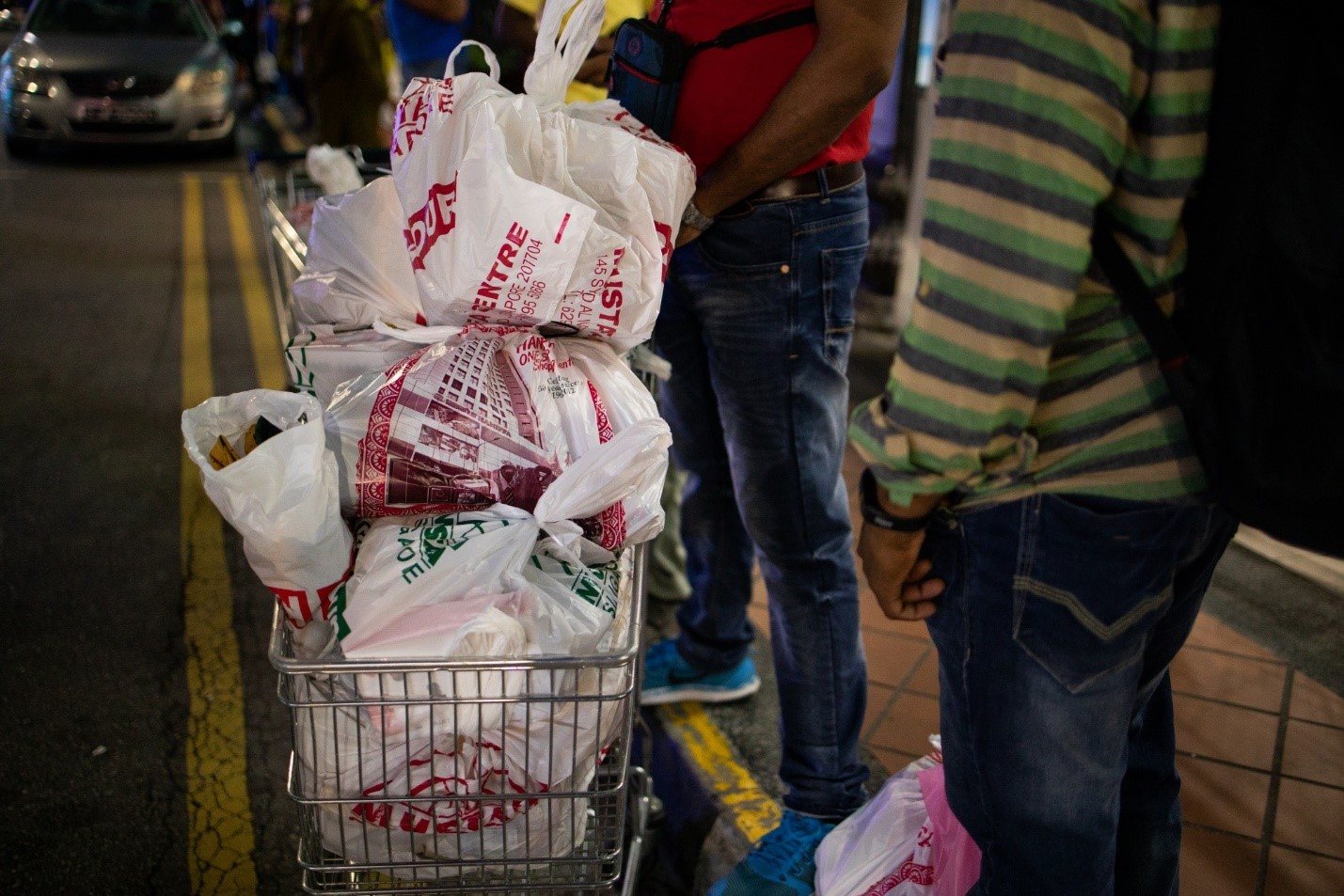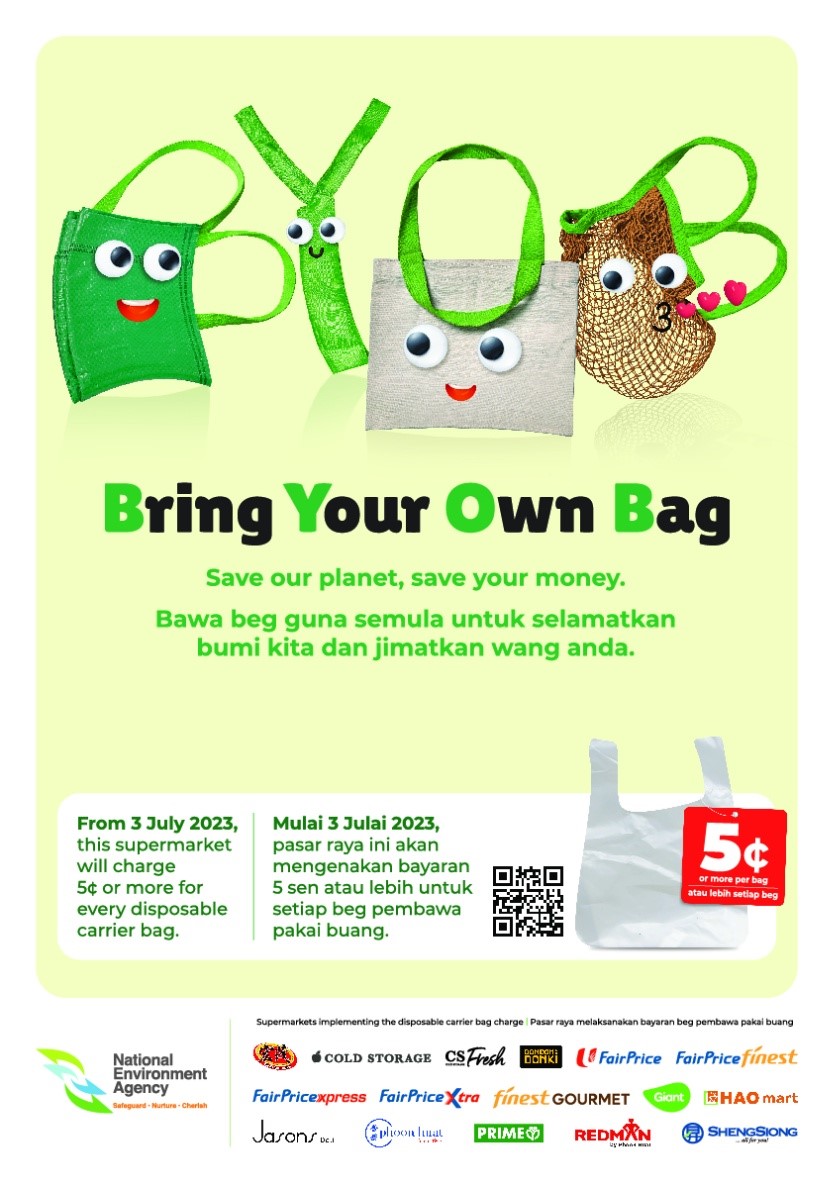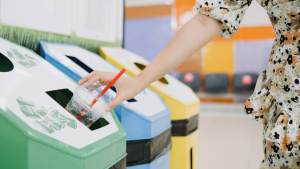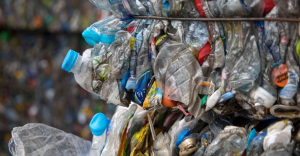Shoppers now have to pay 5 Singapore cents a bag at major grocery stores, or bring their own reusable tote.

Major supermarket chains in Singapore have started charging for plastic bags, a government move designed to encourage shoppers to use reusable totes that is years behind countries including South Korea and Japan.
Beginning Monday, around 400 outlets — or two-thirds of all supermarkets in Singapore — are required to charge shoppers at least S$0.05 ($0.04) for each disposable bag. The fee applies to bags of any material type, though plastic is by far the most commonly used material at major grocery stores such as FairPrice, Sheng Siong and Cold Storage.
“Whether they are made of paper, plastics, or biodegradable materials, disposables have an impact on our environment during their production, transportation, and disposal,” Singapore’s National Environment Agency said on its website. Consumption of disposables will generate waste and carbon emissions, worsening the climate crisis, it said.
Under its Zero Waste Masterplan, Singapore aims to reduce the amount of waste sent to its only landfill each day by 30% by 2030. But compared with other Asian countries, Singapore has been a laggard when it comes to slowing down plastic consumption in stores. In Japan, a mandatory charge on plastic bags in all retail shops was put in place in 2020, while South Korea banned single-used plastic bags at major supermarkets in 2019. Thailand also banned single-use plastic bags at major stores in 2020.

The Singapore government is encouraging supermarket chains to donate the proceeds from the bag fee to environmental or social causes. Some stores already began charging for bags before Monday’s deadline. Other international chains such as Fast Retailing Co.’s Uniqlo and Australia’s Cotton On, which are not included in the new policy, already charge for bags or have banned plastic outright.
“Charging for plastic bags is long overdue,” but it may not be enough to deter consumers, Sumit Agarwal, a professor at the National University of Singapore’s School of Business, wrote in a commentary piece for Channel News Asia in March.
Source: Bloomberg








